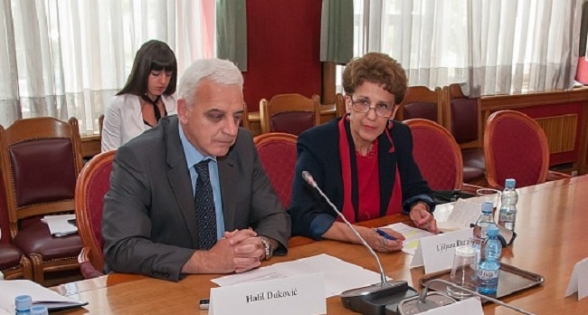Chair of the Committee on Human Rights and Freedoms informed the expert about the legal system of Montenegro, institutions and the way of acting on petitions of citizens and legal entities. He pointed out that Montenegro has the Protector of Human Rights and Freedoms, which is constitutionally defined as an independent authority that takes measures to protect human rights and freedoms. Protector is acting under the Constitution, laws and ratified international treaties, complying with the principles of justice and fairness. Law on the Protector of Human Rights and Freedoms of Montenegro, Chapter V-Acting, articles 28 to 46, stipulates in detailed manner the way in which the Ombudsman operates, in the procedure of examining violations of human rights and freedoms, upon citizens' complaints.
Deputy Chair of the Committee on Human Rights and Freedoms Ljiljana Đurašković said that citizens often directly address the Protector of Human Rights and Freedoms, as they are aware it is an umbrella institution for the protection of their rights, as well as protection from discrimination.
Chair of the Committee on Human Rights and Freedoms expressed his belief that the expert Liccione is familiar with the Law on acting on petitions and proposals from 1978 from the previous legal system and emphasized that the last amendment to the Law was in 2010. He reminded that the law can only be adopted by the Parliament and pointed out that the Law on acting on petitions and proposals is not on the list of laws passed in 2010, so they will request from the "Official Gazette of Montenegro" information on how that Law was amended and published.
Interlocutors expressed their satisfaction with the meeting and all information exchanged, with the hope that information would be useful for the expert in the implementation of the task within TAIEX mission.








